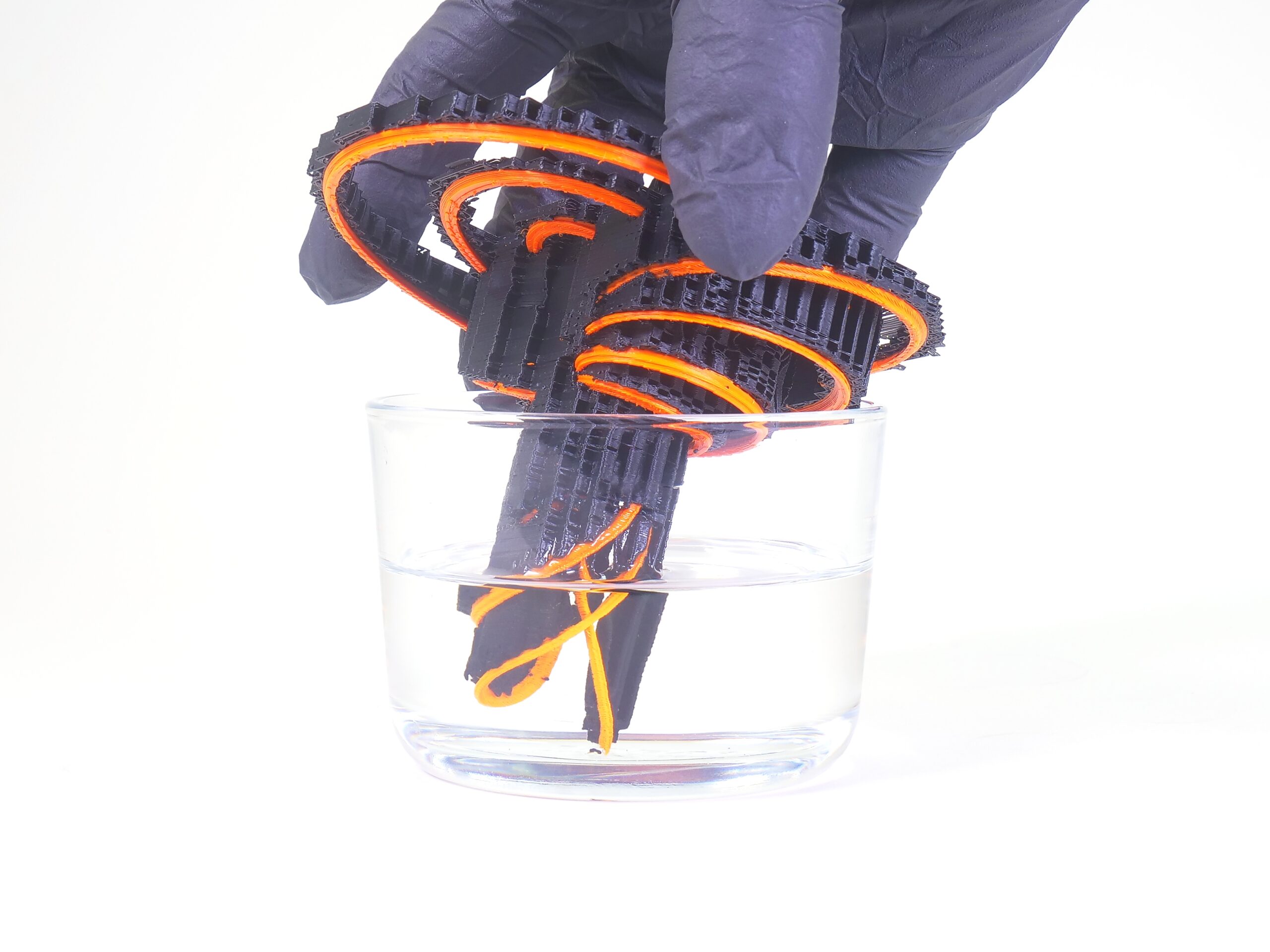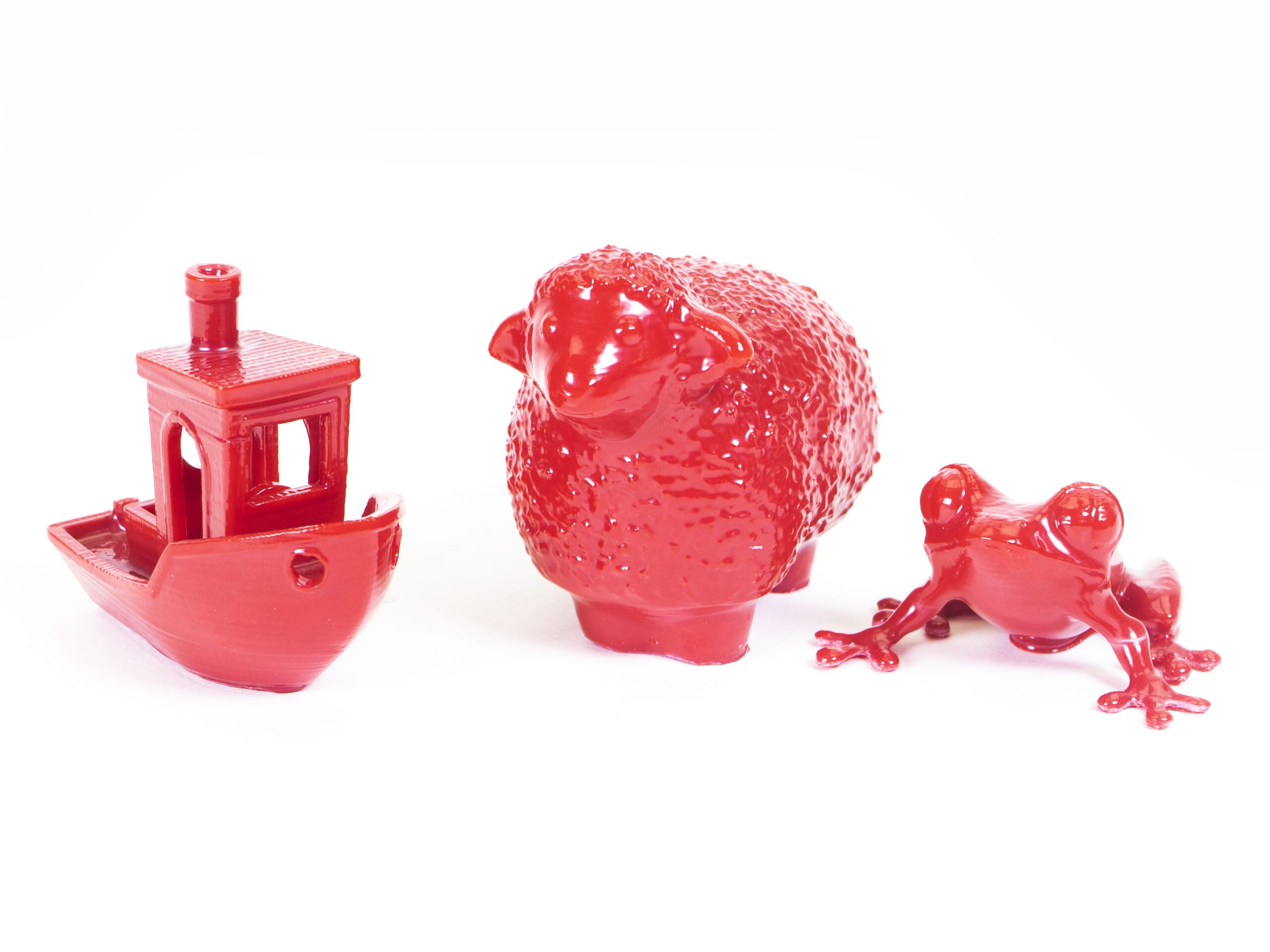
Basic info
Description
HIPS (High Impact Polystyrene) is polystyrene with rubber additives. It has moderate mechanical properties and good dimensional stability. Print and mechanical parameters resemble ABS, but HIPS is lighter and shrinks much less. It can be dissolved with limonene (d-Limonene to be specific) - therefore is usable for printing soluble supports for more complicated PETG prints. HIPS can be sanded, just as ABS and ASA, plus it can be attached to a print surface with ABS dissolved in acetone - this is not needed when using our print sheets, though, as HIPS sticks well enough to the PEI surface.
To compare supported material properties, see our material table.
|
Pros |
Cons |
|---|---|
|
✔ Lightweight material |
✖ Printing HIPS supports might be challenging |
|
✔ Limonene or acetone soluble |
✖ Not suitable for printing supports with ABS or ASA, as those also partially dissolve in limonene |
|
✔ Soluble support material |
Best use
The best use of HIPS is as a soluble support material.
Tips for successful printing
Printing supports might be challenging
Keep in mind that printing ASA, ABS, or PETG with HIPS supports might be challenging if you use MMU2S. Are you beginning to print with MMU2S? Try to print with PLA or PETG first to gain some experience, then try to print with soluble supports. MMU2S unit must be well calibrated for printing with HIPS and even then it might need user attention from time to time.
Brim function
In some cases, HIPS might not stick to the print surface as good as, for example, ASA. In that case, we suggest using the brim function, especially for parts with a small contact area.
Chemical smoothing
Dissolving with limonene
HIPS can be smoothed and dissolved with limonene and acetone. However, with limonene, you cannot utilize its fumes (as we do it with ABS or ASA), as it is an oily substance. For successful smoothing, sink the model for several seconds (10-20 s should be enough) into a limonene bath. Then let it dry for at least 24 hours (a slight temperature increase might speed up the drying process). Keep in mind that residual limonene might remain on the surface long after drying and that the model itself will have a citrus smell for a long time.
Limonene over-exposure
Although HIPS is being used for printing ABS/ASA/PETG supports and will dissolve completely after long exposure to limonene, it is not wise to expose it to the solvent for too long. Some of the ABS and ASA filaments (Prusament ASA Orange for example) are also affected by limonene - it will disrupt the layer adhesion and the model will fall apart into tiny flakes. Instead of dissolving the supports completely, try to just loosen them up by a brief submersion into limonene, then remove the supports manually.
Acetone smoothing
HIPS acetone smoothing is much easier than smoothing ABS or ASA. HIPS layers will melt almost immediately (the whole process takes just a few minutes), plus models tend to dry much faster than ASA and ABS - where you can safely touch them sooner.
Find out more about chemical smoothing in our blog article.
Sample prints
 |  |
| Dissolving HIPS supports with limonene | Acetone/limonene smoothed models |
5 comments
Why say this (?) : well some sources (I found in Googles Search/AI) coyly say HIPS 'could' be used as supports for CoPA: I find it frustrating to find so much misinformation propagated these days.
And is a enclosure really not needed?
I watched two youtube reviews to HIPS, and now I am really not sure, but I can't find anything about this topic on other websites or shops...
Have really, really good results with the smooth sheet though.
Love the texture of HIPS.
Thank you for your feedback:)